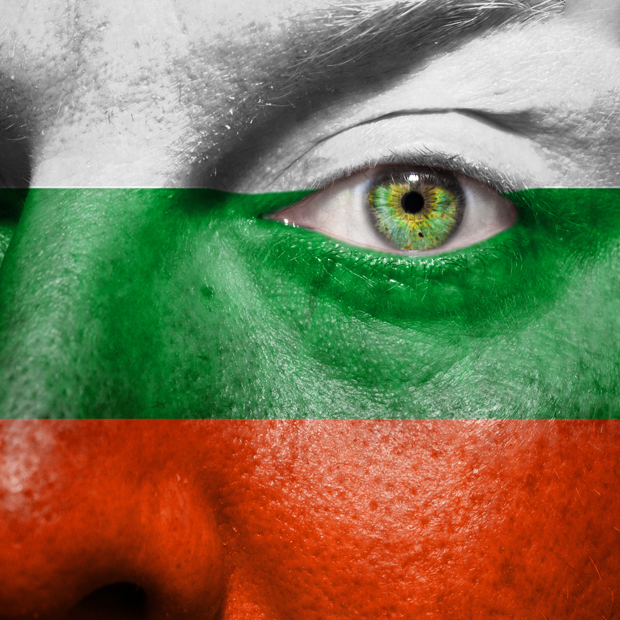06 Nov 13 | About Index, Campaigns, Press Releases
Index on Censorship supports today’s court challenge to the use of counter-terrorism powers to detain David Miranda at Heathrow airport in August. Index is a member of a coalition of free speech and media organisations that has made a written submission in support of Miranda’s hearing.
Online Editor Sean Gallagher said:
‘The Terrorism Act should be used to counter terrorism not to undermine investigative journalism into stories that are in the public interest, such as the ongoing revelations about mass surveillance by The Guardian and David Miranda’s partner, Glenn Greenwald. Misusing counter terrorism laws in this way is an attack on the free expression rights of journalists and their sources.’
The judicial review case will decide if it was lawful to use Schedule 7 of the Terrorism Act to detain Miranda and take confidential materials from him.
Written Submissions of the Coalition of Media and Free Speech Organisatons
24 Oct 13 | About Index, Campaigns, Press Releases
‘If Angela Merkel does not like the idea of having her phone monitored by the NSA then she needs to do something about it.’
Following allegations that the NSA monitored the mobile phone of the German Chancellor Angela Merkel, Index on Censorship demands that the European Union’s leaders address the issue of mass surveillance when they meet at the EU summmit.
Earlier this week, Index delivered a petition to the President of the European Council, Herman Van Rompuy demanding that the EU take a stand against mass surveillance by the US and other governments. The petition was supported by 39 free speech groups from acrss the world and the thousands of signatories included writer and actor Stephen Fry, activist Bianca Jagger, writer AL Kennedy, artist Anish Kapoor and blogger Cory Doctorow. The petition was also delivered to Dalia Grybauskaitė, the President of Lithuania, who currently hold the Presidency of the Council of the EU.
Marek Marczynski, Director of Campaigns and Policy at Index on Censorship said:
‘If Angela Merkel does not like the idea of having her phone monitored by the NSA then she needs to do something about it. It’s time for the EU’s leaders to condemn and put an end to the mass surveillance of European citizens’ private communications by the NSA, GCHQ and other government agencies. They must act now to stop these attacks on our rights to freedom of speech and privacy.’
15 Aug 13 | Bulgaria, Digital Freedom, News and features

(Photo illustration: Shutterstock)
While the revelations around mass surveillance by the US and some European governments were reported by Bulgaria’s media, the country’s focus in recent months has been the fallout from the country’s elections.
After a polarising election in May, tens of thousands went out to protest against the new Bulgarian government and staged daily rallies for over nearly two months. As a result, the significance of the NSA revelations was not enough to elevate it above domestic political skirmishes.
The Snowden affair had all the ingredients for the media sensation other European countries experienced: a huge cover-up affirming most citizens’ suspicions about governments spying on them, a global chase through Hong Kong and Moscow (with possible sequels in Vienna, Havana and Caracas) and – most importantly – a local context.
Bulgarians, long sensitive about government surveillance after nearly five decades of totalitarianism, had an eavesdropping scandal of their own as recently as in April when a former interior minister was accused of wiretapping a host of political figures, businessmen and journalists. According to one opinion poll conducted in April, 73% of Bulgarians believed that their government had been practicing illegal wiretapping.
Thus, the interest for the Snowden affair among the Bulgarian public was a given. And the media promptly reacted, assigning it the expected prominence among their foreign affairs coverage, if not the front pages which the scandal got in Germany, the UK or France.
“Revelations about the NSA activities were covered in Bulgaria, but did not become a central topic for the media as they of coincided with the anti-government protests,” said Nelly Ognyanova, a leading Bulgarian media law expert and media analyst. ‘However, Bulgarian media paid special attention to the aspect of the EU – US relations in the light of the scandal,” she said.
Media in Bulgaria, which joined the European Union in 2007, covered the reaction in Brussels and in major European capitals and especially in Berlin where the topic was becoming a battleground in light of the German general elections in the fall. Bulgarian media also focused on the fact that the NSA scandal was threatening to derail the negotiations for a major free trade agreement between the EU and the US.
End mass surveillance! Sign the petition
EU leaders: Stop mass surveillance | Лидеры Евросоюза: прекратите массовую слежку! | Líderes europeos: Paren la vigilancia masiva | Dirigeants européens: Arrêtez la surveillance de masse! | Europas Staats-und Regierungschefs: Stoppen Sie die Massenüberwachung! | Liderzy Unii Europejskiej: zaprzestańcie masowej inwigilacji! | Лидери на ЕС: Cпрете масовото наблюдение
Since there are only a handful of Bulgarian foreign correspondents, local media mostly quoted international titles like The New York Times, the BBC, The Guardian and Der Spiegel. The Snowden revelations also did not have (obvious) Bulgarian links – when information emerged that the US was secretly wiretapping foreign embassies on American soil, the weekly “Capital” tried to contact the Bulgarian mission in Washington but was referred to the foreign ministry in Sofia which, in turn, had no comment on the case.
As for Snowden himself, Bulgarian media painted a mostly neutral portrait of the whistleblower.
“Bulgarian media were rather sticking to the facts without taking a judgmental position on Snowden, but without making him look like a hero as well,” said Ognyanova. “In Bulgaria there was no discussion like the one that took place in other countries about whether Snowden is a hero. Against the backdrop of the very important information that he revealed, however, the media treated him with a degree of sympathy for his civil courage.”
Given the anti-government protests and the heightened domestic political situation, the political and social media reaction to the Snowden affair appeared mostly muted. The Bulgarian social networks – an otherwise vibrant community of some 2.5 million people – was mostly preoccupied with the anti-government protests which, in fact, originated mostly on Facebook walls and Twitter profiles and later transferred to the streets of Sofia and other major cities.
One small political party, the Greens, issued a statement in July calling the revelations “a serious attack on civil rights and the foundations of democracy” and asking the Bulgarian government to offer asylum to Snowden.
“The Greens party expresses our gratitude to Edward Snowden for his courage and for his service to EU citizens,” the statement said.
According to Ognyanova, the media law expert, it is important to draw conclusions from the NSA affair.
“Either in the free trade pact or in another agreement, there must be a provision to protect the personal data and privacy of European citizens,” she said. “It is high time for the EU to have their own clouds and to not provide our information to companies under the jurisdiction of countries outside the European Union,” she said. “I expect this from my government and from the EU, being its citizen.”
This article was originally published on 15 Aug, 2013 at indexoncensorship.org. Index on Censorship: The voice of free expression.
29 Jul 13 | Comment, Digital Freedom, News and features, United Kingdom, United States

(Illustration: Shutterstock)
In the 1970s, mass surveillance was seen as especially a Cold War thing – what the Soviet bloc did to its own citizens, while also spying on the West. The West ‘only’ targeted a few Soviet spies and perhaps some left-wingers too — but mainly focusing on the Soviet Union and its satellites. From phone taps to opening letters, to directly observing someone, mass population surveillance was certainly undertaken by the Stasi and others, with their armies of informers. But mass snooping was not seen as a domestic concern or risk at home in the West.
Today and every day, we leave our digital footprints all over the place. Our digital trail is collected by telcos, web hosts, social media and others. And as the Snowden/NSA revelations have shown, our data is especially hoovered up from all these sources and more by the US, UK and other governments – covering millions of people around the world.
Prism, Tempora and other programmes indicate a major intelligence dragnet that surely constitutes mass surveillance, with little legal justification, and one that invades and undermines our right to privacy and our freedom of speech – since if everything we write, say and do is recorded and collected then how we behave as individuals and social animals surely changes.
Not so say some. Mass data retention isn’t snooping and surveillance until you analyse it and use it – and then there are various laws that allow targeting of suspicious individuals or groups. After all, if companies like Google, Facebook and Yahoo accumulate masses of our data, and analyse it for advertising purposes, then why should we worry that governments hoover up our data too?
This is a slippery argument and worth unpacking. If a government and its intelligence services want to spy on their own or another population, there is very little transparency and accountability as to how they do that, or what the legal justification, if any, is – and as the underwater cable taps by GCHQ indicate, often with very little need to approach the web hosts or anyone else to ask permission to intercept data.
Mass surveillance needs various elements to work for those carrying it out. You need to collect the data, analyse it according to your interests and needs, and then act on it in some way. For sure the Stasi, like authoritarian regimes and actors today, also understood well that even the act of collection could be, and was intended to be, chilling and fear-inducing.
But what of the US or British or French governments today? Is their collecting of data on all of us – around the world not just their own populations – just big data, to be used for targeted analysis? Or is it an inevitably chilling act, on the basis of which fishing expeditions are carried out, groups and individuals are identified on a large scale as potentially suspicious through the data analysis, and further monitoring and arrests, through to extraordinary rendition or drone attacks, may be the follow up.
The huge quantities of data collected on us in one programme – such as Tempora – can be analysed to build a multi-dimensional picture of our individual personal lives. And with little or no transparency as to who can access the data, or how the analysts are themselves monitored and regulated.
Mass data collection on all our digital communications challenges our rights to freedom of speech and privacy, and more broadly puts at risk our democracy – how can governments be held accountable, if journalists’ sources are no longer anonymous or campaign groups are fully monitored?
The huge overreach by the US and UK governments in deliberately collecting up our data around the world has set up the framework and data for mass surveillance. It’s a core part of monitoring us all. If we are to stop it, then we have to stop the reckless hoovering up of our data (to an extent that puts companies in the shade) and return to a more proportionate and targeted approach.
Mass data retention is a central element in mass surveillance. It needs to stop.


